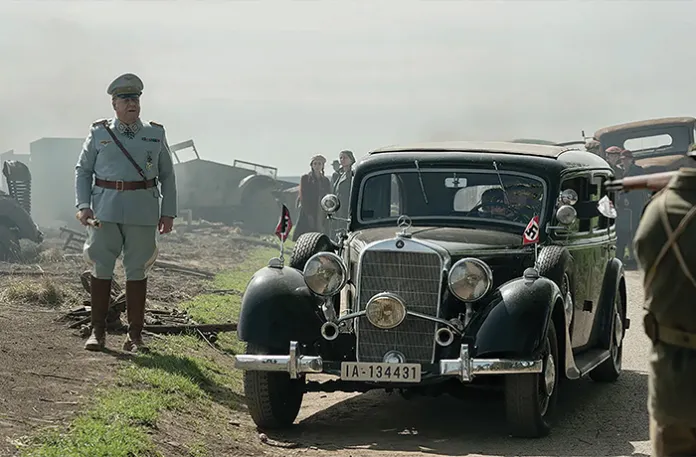Hollywood often surprises with its ability to capture the essence of history, even if complete accuracy remains elusive. The most impactful films don’t just recount events; they convey the *feeling* of them – the chilling dread of Normandy as depicted inSaving Private Ryan, or the suffocating despair of Soviet Russia inDoctor Zhivago. These cinematic interpretations, while dramatized, serve as powerful, and increasingly vital, teaching tools in a world where traditional literacy is in decline.
The new film,Nuremberg, joins this distinguished lineage. Writer-director James Vanderbilt doesn’t simply retell the story of the trials that followed World War II; he meticulously reconstructs the atmosphere of preparation and prosecution, bringing to life the monumental task of holding the highest-ranking Nazis accountable for unimaginable atrocities. Previous attempts have been made, but this film carves its own path.
This time, the focus isn’t on the courtroom drama itself, but on the unsettling psychology of the accused. At the center stands Hermann Goering, portrayed with chilling authority by Russell Crowe. He’s not presented as a raving madman, but as a man utterly convinced of his own righteousness, steeped in hatred, and secure in his perceived importance.

The narrative unfolds through a compelling dynamic between Goering and Douglas Kelley, an American psychiatrist tasked with ensuring the Nazi leaders are mentally fit for trial – and, crucially, preventing them from escaping justice through suicide, a fate that befell Goebbels and Himmler. Kelley, played by Rami Malek, quickly realizes he’s dealing with a darkness that challenges his expertise.
Malek delivers a quietly powerful performance, capturing Kelley’s initial apprehension with a line that resonates with the sheer scale of the task: “Sir, I’m a good doctor, but the entire Nazi high command might be a little beyond my expertise.” Kelley understands he can’t treat these men as simple enemies; he must understand them, even manipulate them, to ensure they face judgment.
He plays on Goering’s vanity, encouraging weight loss for health reasons, and even allows communication with his wife, Emmy. These seemingly small details reveal a fascinating strategy – keeping the accused alive and healthy enough to stand trial, even if it requires a degree of unsettling accommodation. It’s a delicate dance between duty and the inherent revulsion towards his subjects.
Kelley’s work soon becomes integral to the prosecution, led by Justice Jackson, brought to life with understated power by Michael Shannon. Jackson, a man who wasn’t afraid to navigate morally gray areas – even, it’s hinted, “blackmailing the pope” to secure support for the trials – understands the weight of the moment. The pursuit of justice demands difficult choices.
Kelley delves into the twisted ideology that fueled the Nazi regime, dispatching an aide to research its origins while relying on his own observations. A particularly striking moment involves Goering interpreting an inkblot as “10,000 horses,” a revealing glimpse into a mind consumed by self-deception and grandiose projections. Crowe’s performance here is electrifying, a chilling reminder of the man’s unwavering belief in his own narrative.
Kelley prepares Jackson for the inevitable courtroom confrontations, warning him that Goering will exploit any opportunity to pontificate. Jackson’s response is resolute: “This war ends in a courtroom.” Vanderbilt masterfully recreates the courtroom’s stark reality, emphasizing the moral imperative of the proceedings.
But the most devastating sequence arrives with the presentation of actual film footage from the Nazi concentration camps. The raw, undeniable horror of the images floods the screen, forcing both the courtroom and the audience to confront the full extent of the atrocities. It’s a moment of profound and necessary reckoning.
As the trial progresses, Kelley’s role diminishes, and Malek’s performance subtly recedes, but his contribution to understanding the enemy remains undeniable. He documented his experiences in the 1947 book,22 Cells in Nuremberg, a testament to his unique perspective. The film touches upon the tragic irony of Kelley’s own suicide, mirroring the method of Goering, leaving a haunting question about the toll of confronting such profound evil.
Ultimately,Nurembergis a powerful and urgent portrayal of a pivotal moment in history. It’s a film that doesn’t shy away from the darkness, but instead illuminates it with intelligence, clarity, and a profound respect for the pursuit of justice. It’s a reminder that some wars are indeed won not on battlefields, but in courtrooms.





